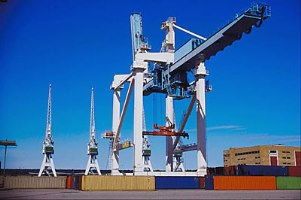
Development of ports and new maritime routes are crucial elements to enhance connectivity and opportunities for economic growth in the Asia-Pacific. The region’s economies depend heavily on maritime trade enabled by reliable, efficient and cost-effective shipping.
This project is led by the France (Pacific Territories) committee for PECC (FPTPEC) and it consists of a set of three seminars. It focuses on the contribution of the maritime dimension to intra-regional connectivity, sustainability and drivers of growth for the PECC economies and small island states. Under the broad theme of ‘Managing the Blue Economy,’ priority attention has been given to factors leading to the emergence of new trade flow patterns, the associated trade routes, and optimization of port operation capabilities to cope with the fluctuations in trade volumes and tourism numbers throughout the region.
The first seminar was held in Papeete (French Polynesia) in October 2015 in partnership with the local government and the second in Busan (Korea) in April 2016 in partnership with the Korea Maritime Institute (KMI). Participating speakers came from domestic and regional organizations, shipping lines and cruise operators, port authorities, builders of container vessels and bulk carriers, port service providers and relevant research institutes. At the two previous seminars, views were exchanged on ways to improve connectivity in the Asia-Pacific region and stimulate economic growth, while addressing significant environmental and safety concerns. They have drawn on examples of successful collaboration with other stake-holders in major international maritime projects as well as highlighting their own best practices.
The third and final seminar of the ‘Blue Economy’ series was held on 5-7 December 2016 in the medium-sized port city of Auckland, New Zealand. The objective was to highlight the critical place that ports hold in supply chain management, examine the impacts of ever-larger container vessels and cruise ships, consider the trend towards integrated port services, review vital safety and security considerations, identify the likely consequences for regional trade flows of free trade agreements, and examine the technological and operational innovations being adopted by an increasing number of ports to become more energy-efficient and economically competitive. The final session focused on the particular challenges faced by small Pacific island ports with presentations from the chief executives of these Pacific Island ports.
The program agenda and individual presentations are available here.
Briefing paper (440KB)
